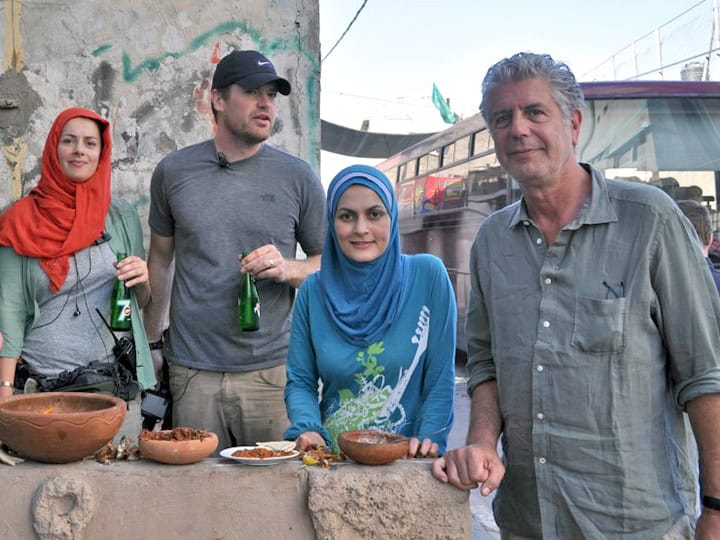Parts Unknown

Bourdain's team had tried unsuccessfully in previous years to enter Gaza, but this time the stars aligned: The border was-under the short-lived Egyptian Morsi government-relatively open, allowing Laila passage. Bourdain and his team managed to secure a Gaza entry permit from Israel, and after filming in Jerusalem and the West Bank, Bourdain arrived in Gaza flabbergasted at the sheer disparity of what he had witnessed along the way.
It was the first time a mainstream American television program had been to the besieged Strip for a cultural feature like this, and it did something few such programs have achieved: it showed Palestinians as people.
Viewers laughed with Um Sultan and her exuberant family, waited in anticipation as the whole Sheikh clan prepared fattit ajir, and heard about the precarious situation of Gaza's fishermen from the fishermen themselves. In a frank manner, with no histrionics, the episode showed the impact of the blockade on the daily lives of ordinary people.
This show was broadcast the world over and into the homes of millions of Americans. Many viewers have told us that it was the first time they had ever seen Gaza in this light, through this lens: families who were, well, normal. Human. Gaza has a cuisine? A sense of humor? A culture? Yes, as it turns out, it has all these things and more! It is a sad testimony to the situation that such an obvious fact needs to be stated. But in a day and age when dehumanizing media coverage can have a very real, even deadly impact on people's lives, it is crucial to provide other images. This unique episode, while not perfect, was groundbreaking in this sense, even more so as it still ranks among CNN's most popular.
Anthony Bourdain was a delight, with a real sensitivity to the places he visited and people he met. He was a rare figure in the media universe that knew how to use his visibility to draw attention to things that really matter. His curious mind and generous spirit are sorely missed.